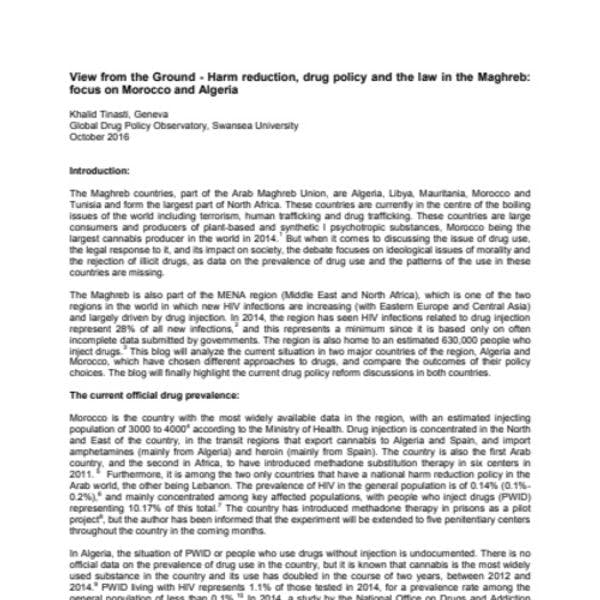View from the ground - Harm reduction, drug policy and the law in the Maghreb: focus on Morocco and Algeria
The Maghreb countries, part of the Arab Maghreb Union, are Algeria, Libya, Mauritania, Morocco and Tunisia and form the largest part of North Africa. These countries are currently in the centre of the boiling issues of the world including terrorism, human trafficking and drug trafficking. These countries are large consumers and producers of plant-based and synthetic l psychotropic substances, Morocco being the largest cannabis producer in the world in 2014. But when it comes to discussing the issue of drug use, the legal response to it, and its impact on society, the debate focuses on ideological issues of morality and the rejection of illicit drugs, as data on the prevalence of drug use and the patterns of the use in these countries are missing.
The Maghreb is also part of the MENA region (Middle East and North Africa), which is one of the two regions in the world in which new HIV infections are increasing (with Eastern Europe and Central Asia) and largely driven by drug injection. In 2014, the region has seen HIV infections related to drug injection represent 28% of all new infections, and this represents a minimum since it is based only on often incomplete data submitted by governments. The region is also home to an estimated 630,000 people who inject drugs. This blog will analyze the current situation in two major countries of the region, Algeria and Morocco, which have chosen different approaches to drugs, and compare the outcomes of their policy choices. The blog will finally highlight the current drug policy reform discussions in both countries.
Keep up-to-date with drug policy developments by subscribing to the IDPC Monthly Alert.
Thumbnail: Flickr CC Victor
Downloads
Topics
Regions
Related Profiles
- Global Drug Policy Observatory (GDPO)
